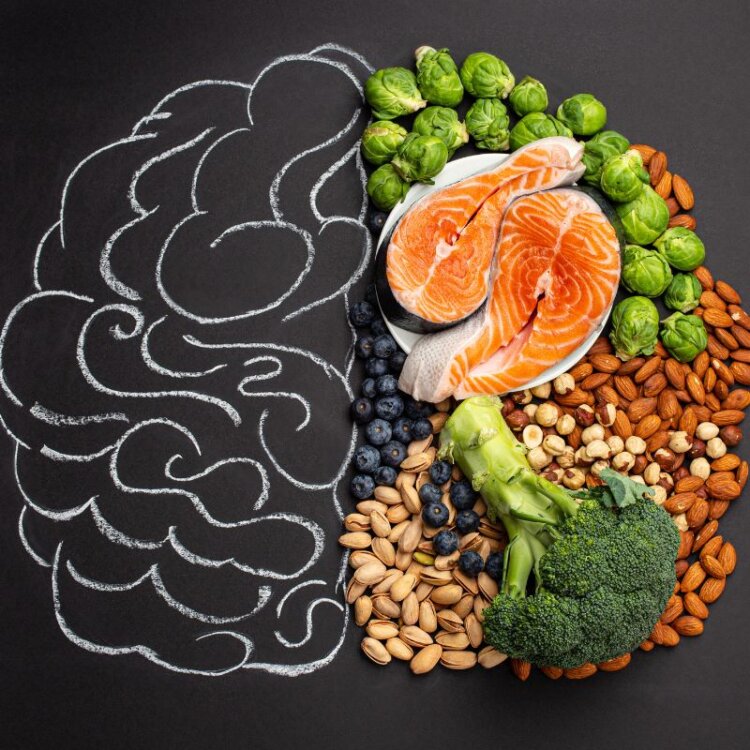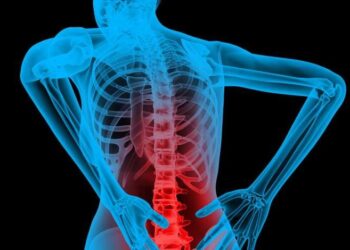Your brain, as the body’s control center, keeps your heart beating and your lungs breathing while also allowing you to move, feel, and think.
Eating specific nutrients can help keep your brain in optimal functional order.
This article includes different foods that promote good brain function.
1. Fatty fish
When people talk about brain foods, fatty fish is often at the top of the list, as it is a rich source of omega-3 fatty acids
Fatty fish can include:
- salmon
- trout
- albacore tuna
- herring
- sardines
Your brain is made up of about 60% fat, with omega-3 fatty acids accounting for slightly more than half of that fat. Omega-3 fatty acids are required for learning and memory because they are used by the brain to construct nerve cells and neurons.
Omega-3s may decrease age-related cognitive decline and possibly prevent Alzheimer’s disease.
On the other hand, insufficient omega-3 fatty acid intake has been related to cognitive deficits and depression.
Overall, eating fish appears to provide health benefits.
Some research reveals that persons who consume fish on a daily basis have greater gray matter in their brains. Gray matter comprises nerve cells that regulate decision-making, memory, and emotion.
2. Coffee
Two main components in coffee — caffeine and antioxidants — can help support brain health.
The caffeine found in coffee has several positive effects on the brain, including:
- Increased alertness: Caffeine keeps your brain alert by blocking adenosine, a chemical messenger that makes you feel sleepy.
- Improved mood: Caffeine may also boost some of your “feel-good” neurotransmitters, such as dopamine.
- Sharpened concentration: One study found that caffeine consumption led to short-term improvements in attention and alertness in participants completing a cognition test
Drinking coffee over time has also been related to a lower risk of neurological illnesses including Parkinson’s and Alzheimer’s. Adults who take 3-4 cups daily experienced the greatest risk reduction.
This could be attributed to coffee’s high concentration of antioxidants.
However, drinking too much coffee or consuming caffeine too soon to bedtime can disrupt your sleep. This may have a harmful impact on your brain and memory.
3. Turmeric
Turmeric is a deep-yellow spice that is a key ingredient in curry powder.
Curcumin, the active ingredient in turmeric, has been shown to cross the blood-brain barrier, meaning it can directly enter the brain. It’s a potent antioxidant and anti-inflammatory compound that may provide the following benefits-
- May benefit memory: Curcumin may help improve memory in people with Alzheimer’s. It may also help clear the amyloid plaques that occur with Alzheimer’s disease.
- Eases depression: Curcumin boosts serotonin and dopamine, both of which improve mood. One review suggested curcumin may improve symptoms of depression and anxiety when used alongside standard treatments in people diagnosed with depression.
- Helps new brain cells grow: Curcumin boosts brain-derived neurotrophic factor, a growth hormone that helps brain cells grow. It may help delay age-related mental decline, but more research is needed.
Most studies use highly concentrated curcumin supplements in doses ranging from 500–2,000 mg daily, much more curcumin than most people consume when using turmeric as a spice. This is because turmeric is only made up of around 3–6% curcumin.
4. Broccoli
Broccoli contains many strong plant components, including antioxidants.
A 1-cup (160-gram) serving of cooked broccoli contains more than 100% of the Recommended Daily Intake (RDI) for vitamin K.
This fat-soluble vitamin is required for the formation of sphingolipids, a type of fat found abundantly within brain cells.
Some studies in elderly persons link higher vitamin K intake to improved memory and cognitive condition.
Broccoli also includes sulforaphane, which has anti-inflammatory and antioxidant properties and may help protect the brain from damage. Broccoli sprouts have large quantities of sulforaphane.
5. Nuts
Eating nuts has been demonstrated in studies to enhance heart health markers, and a healthy heart is associated with a healthy brain and a lower risk of neurological problems.
One study discovered that regular nut eating may be associated to a lower risk of cognitive deterioration in older persons.
Nuts include a variety of nutrients, including healthy fats, antioxidants, and vitamin E, which may explain their brain-health benefits.
Vitamin E protects cells from free radical damage, which can help halt mental decline.
While all nuts are beneficial to your brain, walnuts may have an advantage because they also contain anti-inflammatory omega-3 fatty acids.
6. Oranges
One medium orange provides nearly all of the vitamin C your body requires each day.
Eating oranges and other vitamin C-rich foods may help avoid cognitive impairment.
One study found that having higher amounts of vitamin C in the blood was connected with better performance on tasks requiring focus, memory, attention, and decision speed.
Vitamin C is a potent antioxidant that reduces free radicals, which can harm brain cells. Furthermore, vitamin C promotes brain health as you age and may protect against major depressive disorder, anxiety, schizophrenia, and Alzheimer’s disease.
Other vitamin C-rich foods include bell peppers, guava, kiwi, tomatoes, and strawberries.
7. Eggs
Eggs include elements that promote brain function, such as vitamins B6 and B12, folate, and choline.
Choline is a vital vitamin that your body need to produce acetylcholine, a neurotransmitter that regulates mood and memory. The liver creates a tiny quantity, but you must consume choline to meet your needs. Increased intakes may be associated to improved memory and cognitive performance.
The recommended daily choline intake is 425 mg for most females and 550 mg for males. A single egg contains 147 milligrams.
Eggs contain B vitamins, which help to maintain brain health.
They may decrease the rate of mental deterioration in older persons by lowering levels of homocysteine, an amino acid that has been associated to dementia and Alzheimer’s disease.
Deficiency in two forms of B vitamins—folate and B12—has been related to depression.
Folate insufficiency is widespread in dementia patients, and research suggests that folic acid supplementation can help slow age-related cognitive loss.
Vitamin B12 also helps to synthesize brain chemicals and regulate sugar levels in the brain.
There is limited direct evidence on the relationship between eating eggs and brain health. However, research confirms the brain-boosting effects of particular nutrients found in eggs.







 Finance
Finance







